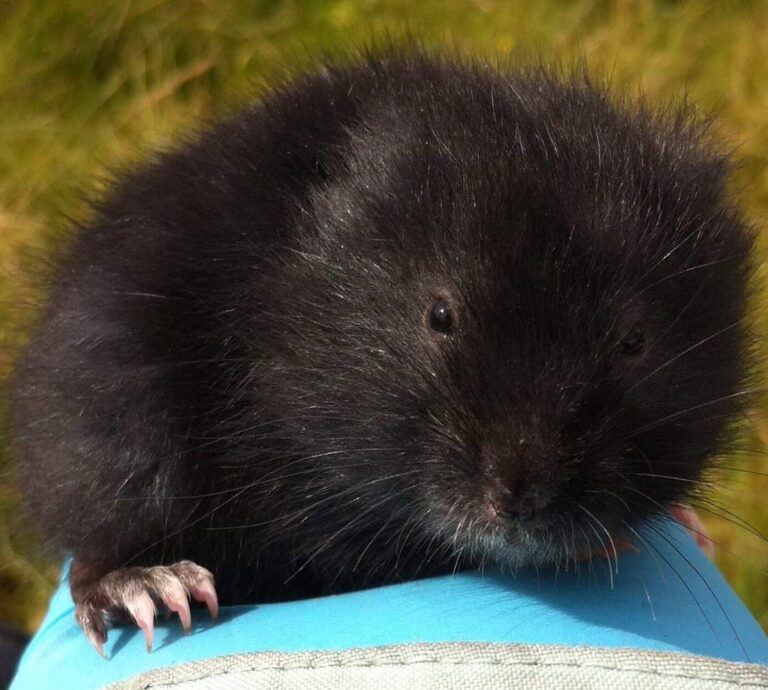Project Description
The one health approach aims to optimise the health of people, animals and ecosystems, due to an increasing appreciation of the interdependence of human and animal health and the environment. Across the globe, diseases transmitted from wildlife have significant impacts on human and livestock health, whilst diseases transmitted between wildlife species can have conservation implications. Within disease ecology a current focus is to determine how host range and variation in host competency may drive either negative or positive relationships between the level of biodiversity and incidence of different diseases. Host competence is also key to understanding the phenomenon of “spillover” of diseases from wildlife to humans or livestock.
Despite the importance of understanding processes that determine variation in host competence, the relationship between host competence and other factors remains poorly understood. Specifically, it remains uncertain to what extent host competence tends to be a host property or an emergent property of a specific host-parasite interaction, as well as how host and parasite life histories interact with host population dynamics to drive transmission and host range. Host species with fast life histories may invest less in immune defence and exhibit generally higher host competence, whilst parasites may be more likely to infect multiple species if the host species are closely related. On the other hand, there is evidence that even “generalist” parasites may show cryptic host-specificity, where different genotypes of the parasite infect different species. Moreover, the relative fitness of generalist and host-specific genotypes may depend on ecological context. For example, host population fragmentation may be favouring the evolution of more generalist strains.
Bartonella infections in wild rodent populations are an ideal model system to examine these unresolved issues. Bartonella are intracellular bacteria that are transmitted by fleas, and which cause bartonellosis when transmitted to humans. Rodent-associated Bartonella species exhibit extremely high genetic diversity and prevalence (>40%) within host populations, and genotypes of Bartonella differ in levels of host specificity. We have recent evidence that the relative frequency of specialist and generalist genotypes of Bartonella may vary between areas with different population dynamics, with generalist genotypes dominating in communities subject to large annual variations in the abundance of individual host species.
This project will use advanced molecular methods and new and archived samples from long-term study sites that differ in rodent community composition and dynamics to:
- quantify genetic variation in Bartonella species and identify associations between Bartonella species and genotypes and host/vector species
- determine whether host specificity vs generalism tends to vary between Bartonella species and/or between genotypes of Bartonella that occur within host species;
- explore if host-sharing of genotypes is more related to host/vector phylogenetic relatedness or host/vector dynamics (e.g. spatial structuring of host populations);
- identify the loci within the parasite and/or host that are associated with variation in host competency.
The project will suit a student with a background in molecular ecology, disease ecology, animal ecology or evolution and provide enhanced skills in field sampling, next generation sequencing, and data analyses. The student will be given a thorough training in diverse laboratory skills, bioinformatic analyses and advanced statistical modelling.
CANDIDATE BACKGROUND
The ideal candidate will have a background in one or more of the following areas: ecology, molecular ecology, one health, parasitology, and/or epidemiology. The candidate should also be willing to contribute to fieldwork and lab-work.
Experience of laboratory work (e.g. DNA extractions, PCR) and/or experience in use of R statistical software or other methods of analysing genetic/genomics data is desirable (though full training will be provided).
Photo credit: Sandra Telfer, UOA
Supervisors
Sandra TelferPrimary Supervisor: | Profile: Sandra Telfer Email: s.telfer@abdn.ac.uk Institution: University of Aberdeen Department/School: School of Biological Sciences |
Eric MorganSecondary Supervisor: | Profile: Eric Morgan Email: eric.morgan@qub.ac.uk Institution: Queen's University, Belfast Department/School: School of Biological Sciences |
Xavier LambinAdditional Supervisor: | Profile: Xavier Lambin Email: x.lambin@abdn.ac.uk Institution: University of Aberdeen Department/School: School of Biological Sciences |
Mark MoseleyAdditional Supervisor: | Profile: Mark Moseley Email: mark.moseley@abdn.ac.uk Institution: University of Aberdeen Department/School: School of Biological Sciences |
Additional Supervisor: | Prof Richard Birtles, University of Salford Email: R.J.Birtles@salford.ac.uk
Prof Phill Watts, University of Jyväskylä Email: phillip.c.watts@jyu.fi |
References
Stewart Merrill TE, Johnson PTJ (2020). Towards a mechanistic understanding of competence: a missing link in diversity–disease research. Parasitology 147, 1159–1170. https://doi.org/10.1017/S0031182020000943
Manlove et al. (2022) Defining an epidemiological landscape that connects movement ecology to pathogen transmission and pace of life. Ecology Letters 25: 1760-1782 https://doi.org/10.1111/ele.14032
Withenshaw et al. (2016) Multihost Bartonella parasites display covert host specificity even when transmitted by generalist vectors. Journal of Animal Ecology 85, 1442-1452 doi//10.1111/1365-2656.12568
QUADRAT Themes
- biodiversity
- environmental-management






















































